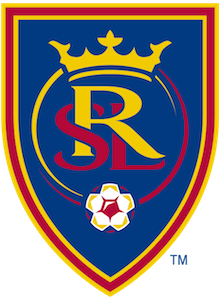Holly Richardson: The power of the story cannot be overestimated
02/28/2018 07:19 PM
My father, who was career Air Force, has LDS pioneer ancestry. As I was growing up, I learned that the Tree (my maiden name) line came from England in the late 1800s and ended up in Davis and Summit counties in Utah. I assumed they were LDS converts in England who immigrated to Utah.I was reality, they heard that there was money to be made in the American West, so they left the small English village where they had been for generations and came looking for the American dream. Once they landed in Utah, they became land-owners and even got involved in local politics. Eventually, they also converted to the LDS Church in Utah. Khalil Gibran said, "Next to hunger and thirst, our most basic human need is for storytelling." It's how we make sense of our world, from macro to micro. When it comes to families, it's the glue that binds. I've written before about the work of psychologists Marshall Duke and Robyn Fivush and their "Do You Know?" scale that asked children 20 questions like, "Do you know where your mom and dad went to high school? Do you know where your parents met? Do you know an illness or something really terrible that happened in your family?"Duke said they were "blown away" by the results. Turns out, the "Do You Know?" scale is the best single predictor of children's emotional health and happiness. The power of story cannot be overestimated. This week is the week that RootsTech — the largest family history conference in the world — is held in the Salt Palace Convention Center. More than 350 classes (admittedly a bit overwhelming for a newbie like me), 170 exhibitors and a focus this year on Latino ancestry are bringing some 15,000 people to the live event and tens of thousands more attending the virtual online event. To my delight, there are more than a few classes on storytelling. DNA genealogy is becoming more and more common. With it come sometimes uncomfortable stories. Siblings you didn't know about, for example. DNA evidence not matching up with family stories. Maybe that story of Great-Great-Great-Grandma being American Indian isn't actually true. (And the DNA technology and information are not foolproof.)Family stories — family lore — may be full of misconceptions, embellished myths or even outright fabrications. My husband's grandfather was an accomplished musician during his heyday, even playing with Tommy Dorsey, but he became a violent alcoholic and lost everything. He did not want his son — my father-in-law — to make any family connections, so he made up birth dates and places for his parents, resulting in many years of chasing fake leads. Eventually, the correct information was found and linked in our family tree. Family stories are like any other kind of story — some are comedic, some tragic, some utopian and some dystopian. You can participate in #52stories52weeks and record one family story a week. Use technology or pen and paper. Create your own project — #52photos52weeks — or any other combination. If storytelling just isn't your jam, you can learn about Chinese genealogy or migration trails across America or using Twitter for genealogy. Come on over to RootsTech and if you see me, say "Hi" — and tell me a story. I'd love to hear it. —Holly Richardson, a Salt Lake Tribune columnist, is new to family history. Unless you count the scrapbooking she tried back in the 1990s. She still has a decade's worth of stickers.


